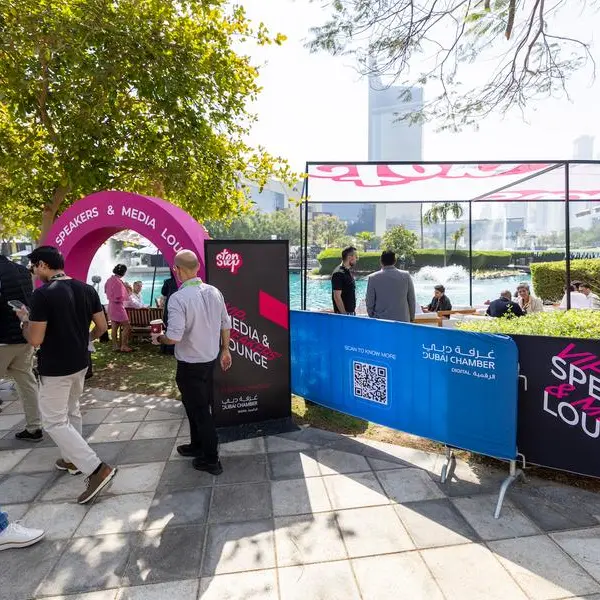PHOTO
Manama: The Islamic International Rating Agency (IIRA) has reaffirmed the outstanding foreign currency ratings of ‘BBB- / A3’ (Triple B Minus /A Three), and a local currency rating of ‘BBB / A2’ (Triple B / A Two) on the international scale, assigned to Banque Al Baraka D'Algérie (“Al Baraka Algeria” or “the Bank”). Meanwhile, the national scale rating has also been maintained at ‘A+/A1’ (Single A Plus / A One). The IIRA report stated that the outlook on the assigned ratings remains ‘Stable’. Al Baraka Algeria’s fiduciary score has also been revised up to the range of ‘71-75’ from ’66-70’.
Established in 1991, Banque Al-Baraka D'Algérie offers retail and commercial banking products and services to customers in Algeria and is one of the pioneering Islamic banks in the country. The Bank is a subsidiary-banking unit of the Bahrain headquartered Islamic multinational banking conglomerate, Al Baraka Banking Group (“ABG” or the “Group”), which holds a majority stake in the Bank at 55.65%. The Government owned Banque de l'Agriculture et du Développement Rural (“BADR”) holds the remainder of the Bank’s shares. The Group’s strong franchise and multi-jurisdictional presence supports the ratings.
Banque Al Baraka D’Algérie is one of only two banking institutions in Algeria operating purely in accordance with participation finance principles. It provides Shari’a compliant banking and financial services in Algeria that include deposits, savings, Takaful as well as various financing products. The Bank operates 31 branches across the country, and it currently holds a 2.0% market share in terms of deposits as of year-end 2019.
The IIRA Report highlighted that the Bank’s equity base grew at a healthy rate in 2019, as internal capital generation improved in tandem with better profitability and lower dividend payout. Combined with a declining asset base, the bank’s capitalization metrics notched up with CAR and tier-1 ratios to 14.0% and 12.7% respectively in 2019, comfortably above 12.0% and 9.5% minimum thresholds set by the Banque D’Algérie, the central bank of Algeria. The Report further highlighted that the liquidity buffers of the Bank are deemed strong, despite falling from previous year. In the medium term, IIRA asserts that the Bank’s buffers are expected to be adequate, and dividend payouts could be adjusted to allow for moderate business growth, coupled with central bank’s allowances on the capital front. The report also points out that the funding profile of the bank also derives strength from reliance on core deposit funds and healthy diversification of depositor base.
The report highlights that, during 2019, the spread income was pressured from a declining asset base as well as weaker margins; yet, the bank’s profitability was supported by both foreign currency trading commissions and moderate operating costs. Consequently, as per the report, the Bank was able to uplift its return on average assets to 2.4% marking a 40bps increase over prior year.
The report recognizes that impairment indicators have deteriorated notably in 2019 with a 110bps increase in gross impairment, given the increase in non-performing financings and muted volume growth. However, the net non-performance ratio of 3.1% of total assets has been deemed by IIRA as still indicative of moderate asset quality, albeit notably deteriorated by over 1.5% compared to the prior year-end. The IIRA Report acknowledges that, going forward, the downward pressures on the asset quality of the Bank due to the economic downturn caused not only by the pandemic, but also by the drop in oil prices.
On the Fiduciary Rating, the IIRA Report stated, “Al Baraka Algeria’s fiduciary score has been revised up to the range of ‘71-75’ from ’66-70’, reflecting adequate fiduciary standards wherein rights of various stakeholders are adequately defined and protected. The main drivers of the upgrade were the improvements on the corporate and Shari’a governance fronts for each of which the score bands were uplifted by one band. Restructuring of risk management department and strengthening of the headcount of control functions were the key positive changes for corporate governance practices”.
Mr. Adnan Ahmed Yousif, President & Chief Executive of ABG and Chairman of Al Baraka Algeria, stated “The reaffirmation of the ratings is yet another endorsement of Al Baraka Algeria’s consistent performance. IIRA’s assessment of the Bank’s overall Fiduciary Score has recognized the significant improvement in Asset Manager Quality, Corporate Governance and Shari’a Governance Framework of the Unit. This indicates strong standards and endorses the Group’s robust corporate governance and Shari’a practices”.
-Ends-
© Press Release 2020
Disclaimer: The contents of this press release was provided from an external third party provider. This website is not responsible for, and does not control, such external content. This content is provided on an “as is” and “as available” basis and has not been edited in any way. Neither this website nor our affiliates guarantee the accuracy of or endorse the views or opinions expressed in this press release.
The press release is provided for informational purposes only. The content does not provide tax, legal or investment advice or opinion regarding the suitability, value or profitability of any particular security, portfolio or investment strategy. Neither this website nor our affiliates shall be liable for any errors or inaccuracies in the content, or for any actions taken by you in reliance thereon. You expressly agree that your use of the information within this article is at your sole risk.
To the fullest extent permitted by applicable law, this website, its parent company, its subsidiaries, its affiliates and the respective shareholders, directors, officers, employees, agents, advertisers, content providers and licensors will not be liable (jointly or severally) to you for any direct, indirect, consequential, special, incidental, punitive or exemplary damages, including without limitation, lost profits, lost savings and lost revenues, whether in negligence, tort, contract or any other theory of liability, even if the parties have been advised of the possibility or could have foreseen any such damages.



















